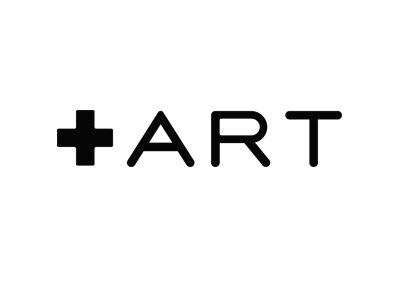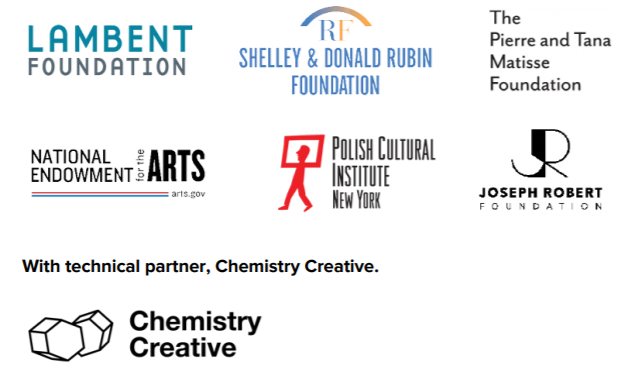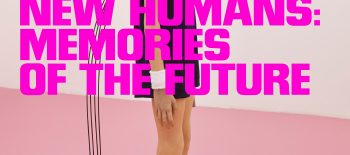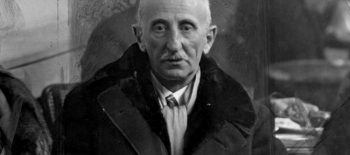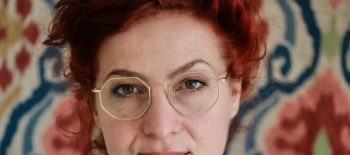USTEDES (Them): New Public Art and Digital Campaign by Krzysztof Wodiczko
Polish Cultural Institute NY is proud to support a new site-specific and community-engaged project by acclaimed artist Krzysztof Wodiczko in collaboration with More Art and its founder and director Micaela Martegani. The launch of the project is by invitation only due to COVID 19 restrictions and will take place on Governor’s Island, New York, in October.
The performance will be accompanied by a dedicated month long digital media campaign featuring a series of short videos, talks, and debates with experts and non-experts, on social media channels to be circulated online. Follow More Art and the Polish Cultural Institute NY social media channels for the campaign program after October 9th.
Follow us on social media for media campaign starting Oct 9:
Polish Cultural Institute NY: Facebook, Twitter, Instagram
Having its initial iteration in Milan in the summer of 2019 titled Loro (Them) , the artist now introduces Ustedes (Them), the second in a series of live performances that use drones and innovative new technologies to amplify the perspectives of migrants, political refugees, and marginalized citizens to explore the complexities of their lives in today’s globalized society. The performance will be paired with a series of short videos, talks, and debates with experts and non-experts, on social media channels to be circulated online as part of the digital campaign.
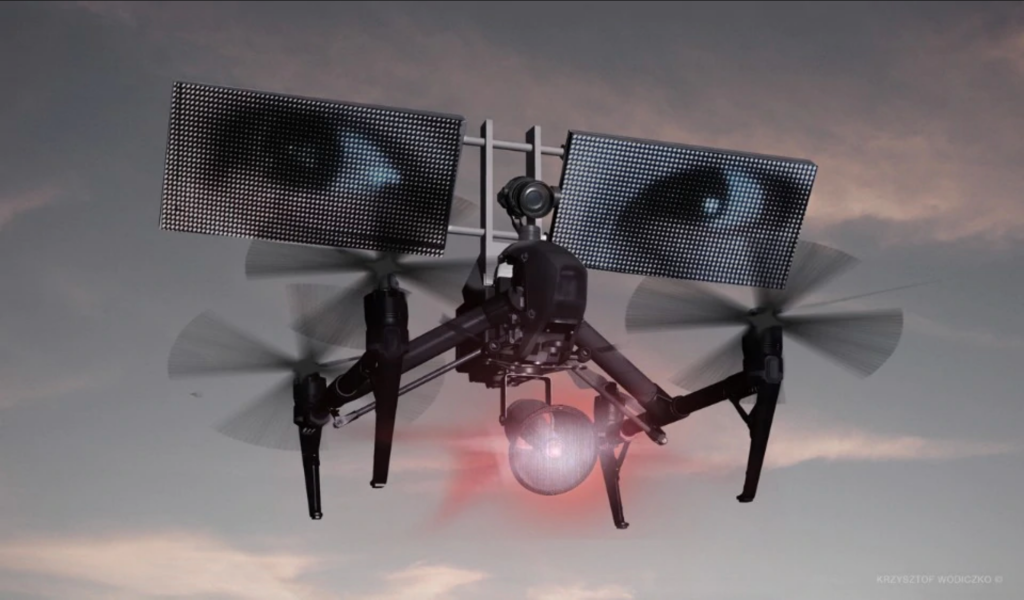
© Photos courtesy of More Art and Krzysztof Wodiczko.
The production co-opts drone technology, often employed by governments for border surveillance operations, as a medium to broadcast the voices and perspectives of immigrants and refugees. For the New York City iteration of the project, the artist engages individuals most affected by bans, separations, and policing, with a focus on labor exploitation. Wodiczko will use his drones to present a moving and difficult recorded performance that addresses American immigration issues, just ahead of the 2020 presidential elections.
Since the 1980s, Wodiczko has pioneered the use of new technologies to bring attention to situations of marginalization. In the case of Ustedes (Them), he uses drones at low altitude to generate conversations between individuals of different backgrounds, experience, and age. Wodiczko will collaborate with immigrants from South and Central America, both documented and undocumented, with many of the voices coming from older generations, who have spent decades working extremely hard in this country in difficult and precarious situations, without safety nets when they can no longer work or get sick. Immigrants often work longer hours for much less money, have no insurance or pension, and may be subjected to sexual exploitation or xenophobic or racist comments and behaviors without having any paths to proper recourse.
With Covid-19 bringing essential and front line workers into clear focus, now is the time to hear from this most vulnerable group. To facilitate a thoughtful and sensitive process, More Art is working with Make the Road New York , the largest progressive, grassroots, immigrant-led organization in New York state, which builds the power of immigrant and working class communities to achieve dignity and justice through legal and survival services, transformative education, community organizing, and policy innovation.
Drones are often associated with images of war, surveillance, intrusion and fear, but in the case of Ustedes (Them) , the artist anthropomorphizes the aircrafts to reclaim a broader conversation about technology’s relationship to humanity. During the performance, four drones will be equipped with two screens showing only the eyes of the people involved in the project. A megaphone-like mouth will amplify each participant’s story with candor and frankness. Faces will not be shown to protect the individuals’ identities, but the eyes and the voice will create a relationship with, and at times directly address, the public. Each drone represents a person, elaborating on the lived experience not only of immigration, but more generally of social and political marginalization, addressing highly topical issues such as cohabitation, citizenship, representation, and even hospitality. The title of the project Ustedes (Them) immediately emphasizes the distance that is created by those who are mistakenly considered different—highlighting the all too familiar “them” vs. “us” dichotomy. At the same time, the artist seeks to cancel this divisive space, putting audiences face to face, albeit virtually, with real stories and real individuals.
Krzysztof Wodiczko was born in 1943 in Warsaw, Poland, and now lives and works in New York and Boston, USA. Since 2010, he has been a professor at the Harvard Graduate School of Design in Cambridge, Massachusetts, where he teaches in the Art, Design and Public Domain program. From 1991 to 2010 he was director of the Center for Advanced Visual Studies and of the Interrogative Design Group at the Massachusetts Institute of Technology (MIT). He also teaches as a lecturer at the Department of Psychology of the School of Social Psychology in Warsaw. Wodiczko received the Hiroshima art prize “for his contribution as an international artist to world peace”.
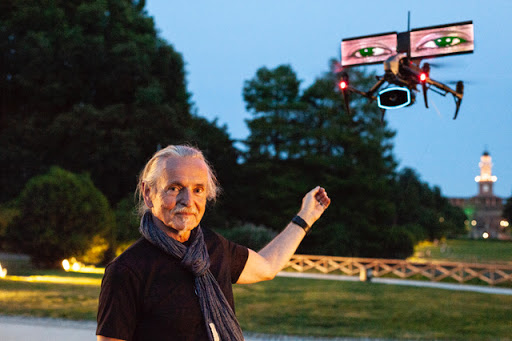
Throughout his career, Wodiczko has been instrumental in combining new technologies with art. Working with still images, video and audio, Wodiczko has become famous throughout the world for his large-scale public screenings of iconic buildings and monuments. Since 1980 he has created more than 90 screenings worldwide, including “Abraham Lincoln: War Veteran Projection” in New York City in 2012 commissioned by More Art. For this screening, Wodiczko has involved dozens of American war veterans and members of their families to explore the traumatic consequences of war. He interviewed fourteen people, recording conversations about their war experiences, the difficult return to civilian life, loss and guilt. These interviews were then mounted in a video projected on the statue of Abraham Lincoln in Union Square Park. The exploration of social and political marginalization through direct engagement and the use of new media is essential for Wodiczko’s artistic practice. For each project, the artist works closely with marginalized groups to analyze the complexities of life on the margins of society, in an attempt to offer a platform to make visible the stories and voices of those who are often rendered invisible. He uses iconic buildings and monuments for projections and media works, redefining these places for education and dialogue.
More information:
More Art: http://moreart.org/projects/ustedes-them/
Krzysztof Wodiczko: https://www.galerielelong.com/artists/krzysztof-wodiczko
Supported by the Lambent Foundation, the Shelley & Donald Rubin Foundation, National Endowment for the Arts, Pierre and Tana Matisse Foundation, the Polish Cultural Institute NY, and the Joseph Robert Foundation.
